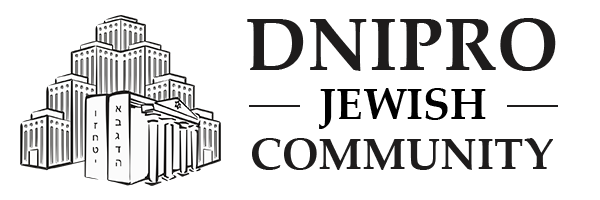.
An important part of the Shmini Atzeret holiday is the recitation of the memorial prayer “Yizkor.” It is read for deceased parents, relatives, and loved ones who do not have children to read Yizkor for them.
The “Yizkor” is recited only in a minyan after the Torah reading, in the “Shacharit” prayer, only a few times a year – on Yom Kippur, on the last day of Passover, on the second day of Shavuot, and on Shemini Atzeret, while those who have both parents alive leave the synagogue.
It is best to read the Yizkor prayer for deceased relatives in person, but if this is absolutely impossible, you can entrust its reading to a representative of the community or through special services, for example, by filling out an online form prepared by the Federation of Jewish Communities of Ukraine
https://forms.gle/t3kA3ySvN3fLjgB37
However, it should be remembered that it is best for the souls of the departed when their relatives themselves come to the synagogue and read the Yizkor prayer for them.
In Dnipro in 2025, the Yizkor prayer will take place on October 14 at 11:30 a.m.
In this prayer (its full name is “Azkarat Neshamot”), we ask for peace for the soul of the deceased. The prayer is very short. It is beautiful and somewhat solemn. However, it is recited individually. According to custom, during the recitation of the “Yizkor” prayer, those whose parents are both alive must leave the synagogue hall. Those whose parents died less than a year ago remain in the synagogue but do not recite “Yizkor” for that parent.
The main part of the Yizkor prayer is a private promise to make a donation in honor of the deceased after the holiday. By giving tzedakah, we physically do a good deed in this material world—something that the deceased is no longer able to do. Nevertheless, when this is done by someone in memory of him, his soul receives additional merit and spiritual elevation.
In Kitzur Shulchan Aruch, regarding the reading of “Yizkor,” it is stated: “On Yom Kippur, the Remembrance of the Dead (Azkarot Neshamot) is read, because remembering the dead humbles the heart of man; and, moreover, this is done because the dead also need atonement, as it is stated in Sifri: ‘Redeem Your people, Israel’—this refers to the living; ‘whom You have redeemed’—this refers to the dead. This teaches us that the dead also need redemption.” And it is customary to make a vow to give charity for the sake of these dead (and see above, chapter 67, paragraph 3, where it is said that when making this vow, one should add: “Without accepting the vow”). And the basis for this custom is that at the end of the chapter Tetzaveh it is said: ” Once a year shall atonement be made…,“ and immediately after this verse it says: ”And let everyone give a ransom for his soul to God.” And alms given on behalf of the dead helps them, since God, who sees what is in the heart, knows that if this dead person were alive, he would also give alms. And the living have the right to ask for leniency for the dead—as David did when he prayed for Absalom (Tractate Sota, 10:2)—and the righteous dead intercede for their descendants.”
Text of the Izkor prayer
For a father (or other male relative):
May God remember the soul of my father, my mentor (or: my husband; my son; my brother; my uncle; my grandfather) <Jewish name (if any) of the deceased> son of <Jewish name (if any) of his mother>, who has passed away, as a reward for my offering a donation in his name without binding myself to a vow. May his soul dwell in the abode of eternal life together with the souls of Abraham, Isaac, and Jacob, Sarah, Rivka, Rachel, and Leah, and with the souls of other righteous men and women who dwell in Gan Eden, and let us say: Amen!
Transliteration:
Izkor Elohim nishmat aba mori (or: ba’ali (for husband); bnei (for son); Achi (for brother); Dodi (for uncle); Zkeini (for grandfather)) <Jewish (if any) name of the deceased> ben <Jewish (if any) name of his mother>she-alah le-olamo ba’avur she-bli neder etan tzada ba’ado. bi-shaar ze te-ei nafshu tzrura bi-tsror a-haim im nishmat Avraham, Yitzchak ve-Yaakov, Sarah, Rivka, Rachel ve-Leah ve-im she-ar tzaddikim ve-tzidkaniot she-be-gan eden. ve-nomar amen!
For my mother (or another woman):
May God remember the soul of my mother, my mentor (or: my wife; my daughter; my sister; my aunt; my grandmother) <Jewish name (if any) of the deceased> bat <Jewish name (if any) of her mother>, who has passed away, as a reward for my making a donation on her behalf without binding myself to a vow. May her soul dwell in the abode of eternal life together with the souls of Abraham, Isaac, and Jacob, Sarah, Rivka, Rachel, and Leah, and with the souls of other righteous men and women who dwell in Gan Eden, and let us say: Amen!
Transliteration:
Izkor Elohim nishmat imi morati (or: ishti (for a wife); biti (for a daughter); achoti (for a sister); dodoti (for an aunt); zkenti (for grandmother)) <Jewish (if any) name of the deceased > bat <if any) name of her mother> she-alha le-olama ba’avur she-bli neder etan tzada ba’ada. bi-shtar ze te-ei nafshah tzrurah bi-tsror a-chaim im nishmat Avraham, Yitzchak ve-Yaakov, Sarah, Rivka, Rachel ve-Leah ve-im she’ar tzaddikim ve-tzidkaniot she-be-gan eden. ve-nomar amen!
After that, say:
Father of mercy, dwelling on high, in His great mercy, may He remember with compassion the pious, the upright, and the pure—all the communities of saints who gave their lives in the name of sanctifying His Name. Swift as eagles and mighty as lions, they were, fulfilling the will of their Creator, the desire of their Maker. May God remember them favorably, and all the righteous of the world, and avenge the blood of His servants that has been shed. As Moses, God’s chosen one, wrote in the Torah: “Rejoice, all the tribes of His people! For He will avenge the blood of His servants, bring retribution upon their enemies, and comfort His land and His people.” And it is written by the prophets, Your servants: “I will forgive, but I will not forgive the blood (of my people),” says the Lord who dwells in Zion.“ And in the Holy Scriptures it is said: ”Why should the nations say, ‘Where is their God?’ Let it be known to the nations, and let us see it with our own eyes: vengeance for the blood of Your servants.” And it is said: “For He seeks blood and remembers it, and does not forget the groans of the afflicted.” And it is said: “He will judge the nations for the multitude of those they have killed, and punish the rulers of powerful states who pride themselves on drinking from the river of abundance that flows through their land.”
Transliteration:
Av arachamim shokhen meromim, berahamav aatsumim, U yifkod berachamim, ahasidim veayesharim veaatmimim, kehilot akodesh shemasru nafsham al kdushat Hashem, aneeavim veaaneimim behayeyem, uvemotam lo nifradu. Minsharim kalu, umearayot gaveru, laasot retson konam vehefets tsuram. Yizkerem Eloh-eynu letova, im sh’ar tzadikey olam, veyinkom nikmat dam avadav gashafukh. Kakatuv betorat Moshe ish Aeloim: arninu goyim amo, ki dam avadav yikom, v’enakam yashiv letsarav, v’ehiper admato amo. Ve’al yedei avadekha aneviyim katuv leymor: v’eniketi damam lo niketi, Vadonai shohen b’tsionyon. Uvehitvey hakodesh ne’emar: lama yomru agayim ayye Elo-eyem, yivada bagoyim le’eyneinu nikmat dam avadekha hashafukh. V’eomer: ki d’oresh damim otam zachar, lo shachakh tsaakat anavim. V’eomer: yadin bagoyim male gviyot machats rosh al’eretz raba. Minachal baderech yishte, al ken yarim rosh.
In Dnipro, in 2025, the Yizkor prayer will be held on October 14 at 11:30 AM.
Using materials from the websites www.ru.chabad.org and http://toldot.ru
.




